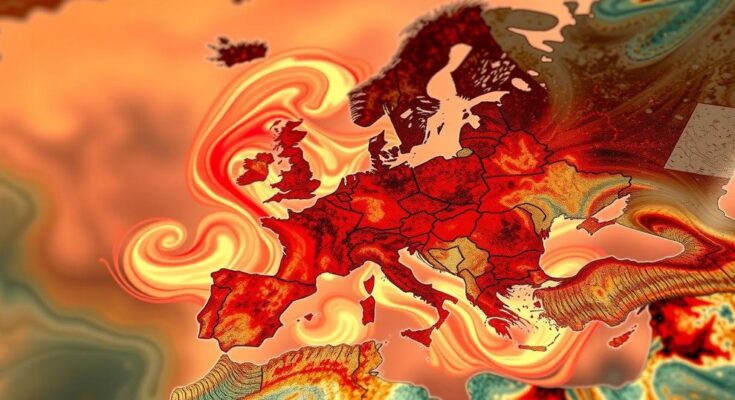The Copernicus climate agency has announced that Earth is likely experiencing its hottest year ever for the second year in a row, having surpassed 1.5 degrees Celsius of warming. The report links this increase to rising greenhouse gas levels and other climate factors, posing profound implications as the world approaches critical climate negotiations. The need for significant adaptation funding is highlighted amid a backdrop of rising extreme weather events.
The European climate agency Copernicus has reported that for the second consecutive year, Earth is poised to be the hottest it has ever been. The year 2024 marks the first instance where global warming has surpassed 1.5 degrees Celsius above pre-industrial levels. Carlo Buontempo, the director of Copernicus, expressed concern over the persistent nature of temperature increases, attributing them to rising greenhouse gas levels, exacerbated by factors such as El Niño and volcanic activity. Despite these contributing elements, scientists maintain that the overall trend of increasing temperatures is troubling.
The announcement follows a significant political event, with Donald Trump being recently reelected in the United States amidst ongoing global discussions on climate change. The impending 29th U.N. Climate Conference is set to address essential strategies for funding the transition to clean energy, amidst the alarming need for adaptation funds to handle the escalating effects of climate change, which currently fall far short of the estimated requirements. U.N. Secretary-General Antonio Guterres noted, “Earth’s ablaze,” emphasizing the gravity of the situation, especially for vulnerable populations.
Despite crossing the 1.5-degree threshold for a single year, Buontempo clarified that it is different from the Paris Agreement goals, which aim to sustain an average temperature increase of 1.5 degrees Celsius over the longer term. The consensus among climate scientists is that immediate and decisive action is critical to avert further warming and its dire consequences. The report from Copernicus serves as a stark reminder of the global challenges posed by climate change, necessitating a unified worldwide effort to combat this pressing issue.
The climate crisis has reached a critical juncture, with the European climate agency Copernicus reporting unprecedented global temperatures for two consecutive years. Factors such as rising greenhouse gases and cyclical climate phenomena are complicating efforts to mitigate climate change impacts. With the world’s average temperatures having already increased by approximately 1.3 degrees Celsius since the mid-1800s, the consequences are immediate and severe, with extreme weather events becoming more frequent and intense. Governments and organizations worldwide recognize the urgent need for funding and action as exacerbating conditions threaten vulnerable populations and ecosystems. The forthcoming U.N. Climate Conference aims to foster cooperation and pave the way for sustainable energy solutions.
The report from Copernicus highlights the alarming trend of global warming, emphasizing that the Earth is on track to record its hottest year yet for the second consecutive time. Despite natural factors contributing to the current warming, the overwhelming influence of greenhouse gas emissions reflects the urgent need for global action to combat climate change. With significant discussions approaching at the U.N. climate conference, it is essential for nations and individuals alike to take responsibility for the climate crisis and work toward effective adaptation strategies.
Original Source: apnews.com




